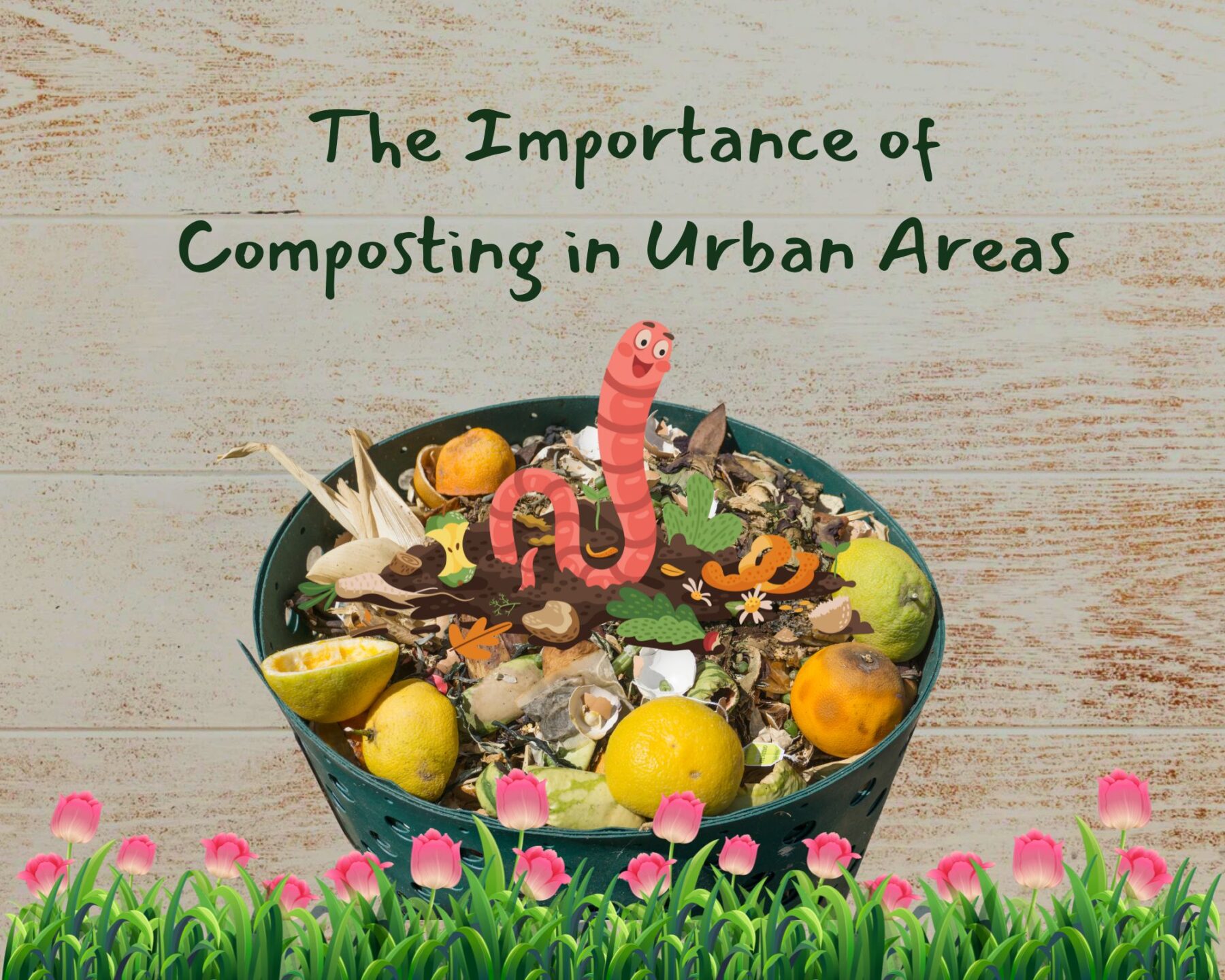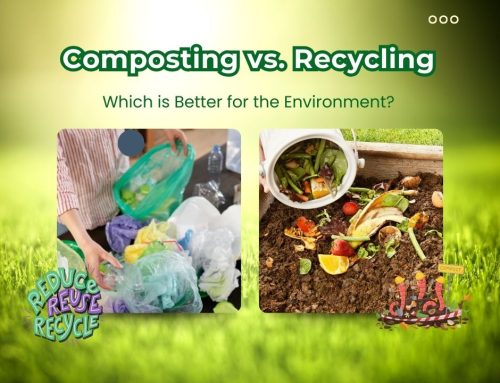As cities grow, so does the volume of waste they generate. With limited space and a higher concentration of people, waste management in urban areas can be a significant challenge. One simple yet impactful solution to reduce this waste is composting—a practice that transforms organic materials into nutrient-rich soil. While it’s easy to associate composting with large suburban gardens, city dwellers can also play a critical role in reducing waste through apartment-friendly composting methods. Here’s why composting matters in urban environments and how you can make it work, even in a small space.

Why Composting Matters in Cities
- Waste Reduction: Food scraps, yard waste, and other organic materials make up a significant portion of what we throw away—up to 30% of household waste. By composting, city residents can help divert this waste from already overburdened landfills. This, in turn, reduces greenhouse gas emissions like methane, which is produced when organic waste decomposes in anaerobic landfill conditions.
- Nutrient Recycling: Composting not only reduces waste but also returns valuable nutrients to the soil. Urban areas with community gardens, rooftop farms, or even small container gardens can benefit greatly from compost. It helps improve soil structure, retains moisture, and reduces the need for chemical fertilizers. Even if you don’t have your own garden, you can often donate your compost to local green spaces or community gardens.
- Mitigating the Urban Heat Island Effect: Cities are often hotter than rural areas due to the heat absorbed by buildings and asphalt. Plants and green spaces can help mitigate this effect by cooling the environment through evapotranspiration. Healthy, compost-enriched soil supports more robust plant growth, thus contributing to cooler, greener cities.
Apartment-Friendly Composting Methods
Even if you live in a small apartment, composting is more accessible than you might think. With a bit of creativity and the right tools, urban composting can fit seamlessly into your life. Here are some methods that work well for city dwellers:
- Indoor Compost Bins: Indoor composting can be simple with small, odor-free bins designed for tight spaces. These bins often come with charcoal filters to keep smells at bay and are great for kitchen scraps like fruit and vegetable peelings, coffee grounds, and eggshells. These can be purchased or even DIYed with the right materials and guidance.
- Bokashi Composting: Bokashi composting is an anaerobic method that uses a special bran inoculated with microorganisms to ferment food waste, even meats and dairy, which are typically harder to compost. The process occurs in a sealed container, making it perfect for apartment dwellers. After the fermentation process, the waste can be buried in a garden or added to a larger compost pile to complete decomposition.
- Worm Composting (Vermiculture): Vermiculture involves using worms—specifically red wigglers—to break down food scraps into nutrient-rich compost. This method is ideal for small spaces, as worm bins can be kept indoors or on a balcony. Worms can eat through vegetable scraps, cardboard, and coffee grounds, producing rich compost known as “worm castings” in just a few months. Vermiculture setups can be found online or easily constructed with household materials.
- Community Composting: If you don’t have space for composting in your apartment, check if your city offers community composting programs. Many urban areas have drop-off locations for food waste, or you may find a local farmers’ market or community garden willing to accept your compost contributions. Some cities even offer curbside compost collection alongside regular trash and recycling pickups.
Tips for Urban Composting Success
- Balance Green and Brown Materials: For efficient composting, aim for a balance between “green” materials (like food scraps and coffee grounds) and “brown” materials (like dry leaves, shredded paper, or cardboard). This helps prevent odors and speeds up the composting process.
- Prevent Odors: One of the main concerns for apartment composting is odor. To avoid this, ensure your compost has plenty of airflow and doesn’t become too wet. Layering food scraps with dry, brown materials like shredded paper or dried leaves can help keep your compost smelling fresh.
- Freeze Food Scraps: If you’re worried about accumulating food scraps between compost drop-offs, consider freezing them. This method eliminates odors and keeps pests away until you’re ready to compost.
Conclusion
Composting in urban areas is not only possible but also an essential step toward creating more sustainable cities. By adopting apartment-friendly composting methods, city dwellers can significantly reduce the amount of waste sent to landfills, contribute to healthier soil, and support local urban gardens. Whether you choose to compost at home or participate in a community composting program, every little bit helps in the fight for a greener, more sustainable future.



